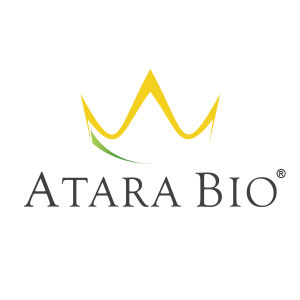预约演示
更新于:2025-05-07
EBV-Related Post-Transplant Lymphoproliferative Disorder
EBV 相关的移植后淋巴增殖性疾病
更新于:2025-05-07
基本信息
别名 EBV-Related PTLD、EBV-Related Post-Transplant Lymphoproliferative Disorder、Epstein-Barr Virus-Related Post-Transplant Lymphoproliferative Disorder |
简介- |
关联
6
项与 EBV 相关的移植后淋巴增殖性疾病 相关的药物作用机制 CD20抑制剂 [+1] |
在研机构 |
原研机构 |
非在研适应症- |
最高研发阶段批准上市 |
首次获批国家/地区 美国 |
首次获批日期2023-05-19 |
作用机制 蛋白酶体抑制剂 |
在研适应症 |
最高研发阶段批准上市 |
首次获批国家/地区 美国 |
首次获批日期2003-05-13 |
13
项与 EBV 相关的移植后淋巴增殖性疾病 相关的临床试验NCT05688241
Epstein-Barr Virus (EBV) -Specific T Memory Stem Cell (Tscm) Therapy to Treat EBV- Driven Lymphomas/ Diseases
In this multi-center open-label, non-randomized phase I/II intervention study three consecutive doses of donor-derived EBV Tscm-CTLs will be administered to 10 patients with treatment-refractory EBV lymphoma, diseases or PTLDs. EBV Tscm-CTLs will derive from hematopoietic cell transplant (HCT) or third-party donors.
开始日期2026-11-01 |
申办/合作机构 |
NCT06672705
Phase Ib Study to Assess the Efficacy and Safety of Epcoritamab in Relapsed or Refractory Post-Transplant Lymphoproliferative Disorder
This phase Ib trial tests the safety and effectiveness of epcoritamab in treating patients with post-transplant lymphoproliferative disorder (PTLD) that has come back after a period of improvement (relapsed) or has not responded to previous treatment (refractory). Epcoritamab, a bispecific antibody, binds to a protein called CD3, which is found on T cells (a type of white blood cell). It also binds to a protein called CD20, which is found on B cells (another type of white blood cell) and some lymphoma cells. This may help the immune system kill cancer cells. Giving epcoritamab may be safe and effective in treating patients with relapsed or refractory B-cell PTLD.
开始日期2025-05-01 |
NCT04554914
An Open-label, Single-arm, Multicohort, Phase 2 Study to Assess the Efficacy and Safety of Tabelecleucel in Subjects with Epstein-Barr Virus-associated Diseases (EBVision)
The purpose of this study is to assess the efficacy and safety of tabelecleucel in participants with Epstein-Barr virus (EBV) associated diseases.
开始日期2021-07-14 |
申办/合作机构 |
100 项与 EBV 相关的移植后淋巴增殖性疾病 相关的临床结果
登录后查看更多信息
100 项与 EBV 相关的移植后淋巴增殖性疾病 相关的转化医学
登录后查看更多信息
0 项与 EBV 相关的移植后淋巴增殖性疾病 相关的专利(医药)
登录后查看更多信息
620
项与 EBV 相关的移植后淋巴增殖性疾病 相关的文献(医药)2025-04-01·Human Immunology
Single-cell analysis unveils immune dysregulation and EBV-driven lymphoproliferative disorder in pediatric liver transplant recipients
Article
作者: Chen, Chen ; Zhang, Zheng ; Liu, Chao ; Zhou, Tao ; Wen, Yanling ; Gu, Guangxiang
2025-04-01·Journal of Managed Care & Specialty Pharmacy
A summary from the Institute for Clinical and Economic Review’s New England Comparative Effectiveness Public Advisory Council
Article
作者: McKenna, Avery ; Raymond, Finn ; Lin, Grace A. ; Lee, Woojung ; Richardson, Marina ; Agboola, Foluso
2025-02-25·Cureus
Unveiling the Puzzle: Reactivated Epstein-Barr Virus-Associated Pancreatitis in a Young Adult
Article
作者: Zatoulovski, Michael ; Coffin, Michael K ; Johnson, Steven ; De Castro, Jacob ; Tashpulatova, Zulfiya
87
项与 EBV 相关的移植后淋巴增殖性疾病 相关的新闻(医药)2025-02-14
FRIDAY, Feb. 14, 2025 – Kidney transplants can be lifesaving, but a
new study
suggests that some recipients may be at greater risk for a rare and aggressive cancer known as post-transplant lymphoproliferative disorder (PTLD).
The culprit is the Epstein-Barr virus (EBV). Best known for causing mononucleosis, Epstein-Barr virus is also linked to risk for several cancers, including PTLD.
More than 90% of adults in the U.S. are or have been infected with EBV. When kidney transplant patients who’ve never been exposed to it receive organs from a donor who has carried the virus, they can develop PTLD.
For the study, researchers analyzed data from two large U.S. transplant centers. They compared rates of EBV among kidney transplant recipients whose donors tested positive for the virus.
Fully 22% of never-infected transplant recipients who received a kidney from a donor who had been infected with the virus developed PTLD within three years after their transplant.
Nearly one-third of those affected by PTLD died from it during the study period.
People who receive kidney transplants must take immunosuppressive medications to prevent their body from rejecting the new kidney. These medications increase the risk of developing EBV-associated PTLD, according to the National Kidney Foundation.
The new data suggest that up to 5% of adult kidney transplants -- as many as 1,200 patients per year -- could be at risk for PTLD. This is five to 10 times higher than previously estimated based on national registry data, the study authors point out.
“National registry data likely underestimates PTLD incidence due to incomplete reporting and errors in tracking whether organ donors and recipients have been exposed to viruses like EBV,” said study author
Dr. Vishnu Potluri
in a news release. Potluri is an assistant professor in the Renal Electrolyte and Hypertension Division at the Hospital of the University of Pennsylvania in Philadelphia.
The risk of being diagnosed with PTLD after a kidney transplant is widely recognized, but until now, it has mainly been studied in children who are less likely to have been exposed to EBV.
“Given the significant threat to survival posed by PTLD and the substantial discrepancy between our findings and prior data, our study serves as a call to action to prioritize further research to enhance the safety and survival of this vulnerable transplant population,” said study author
Dr. Chethan Puttarajappa
, an associate professor in the renal-electrolyte division at the University of Pittsburgh.
The findings suggest it is time to change how kidney transplant patients are monitored for EBV and PTLD.
“We need to rethink how we monitor patients for EBV infection and how we manage immunosuppression for these high-risk patients,” said
Dr. Emily Blumberg
, director of Transplant Infectious Diseases at Penn Medicine. "This includes early and routine testing for EBV and exploring personalized adjustments to immunosuppressive therapy."
EBV screening rates vary among centers in the U.S., and many do not routinely screen for EBV after kidney transplantation.
If a patient develops PTLD, lowering doses of immunosuppressive drugs is the first step, according to the National Kidney Foundation.
The study was recently published in the
Annals of Internal Medicine
.
Whatever your topic of interest,
subscribe to our newsletters
to get the best of Drugs.com in your inbox.
临床研究
2025-01-22
Atara said it has discussed and agreed with the FDA “upon the actions necessary to release the clinical holds”. Image credit: Shutterstock / Lamar Belina.
Atara Therapeutics’ pipeline has hit another obstacle after the US Food and Drug Administration (FDA) halted clinical trials evaluating two of the company’s T-cell immunotherapies, after receiving a complete response letter (CRL) last week.
The clinical hold by the FDA is on active investigational new drug applications for Epstein-Barr virus-positive post-transplant lymphoproliferative disease (EBV+ PTLD) treatment Ebvallo (tabelecleucel), and ATA3219, a candidate for the treatment of non-Hodgkin’s lymphoma and systemic lupus erythematosus.
Screening and enrolment of new participants in both programmes have been halted, whilst those who have the potential to gain clinical benefit from the drugs may continue treatment.
Shares in the US company were down 4.1% at market open on 21 January following the announcement and closed a further 3.8% lower at market close. Atara has a market cap of $34.8m.
Atara stated that the FDA’s decision was based on an inspection of a third-party manufacturing site conducted as part of a pre-licence inspection for Ebvallo. The FDA found there were inadequately addressed good manufacturing practice (GMP) compliance issues at the third-party facility. Whilst ATA3219 drug product is manufactured at a separate facility, the drug was still implicated in the clinical hold because its starting materials are affected by the compliance issues at the same third-party facility.
Atara said it has discussed and agreed with the FDA “upon the actions necessary to release the clinical holds”.
Atara’s CEO Cokey Nguyen said: “We intend to work closely with the FDA to address these issues as expeditiously as possible.
“We are encouraged with ongoing correspondence with the agency and a potential path to submitting the necessary data to release the clinical hold. Patient safety remains our priority and maintaining the highest standards for our programmes.”
Atara reassured concerns over its other third-party manufacturer – Fujifilm Diosynth Biotechnologies – whose facility in California is unaffected by the issues which caused the CRL and clinical hold. This site was recently approved by the European Medicines Agency (EMA) to manufacture Ebvallo, which was
approved in Europe
in December 2022.
Atara’s shares also took a hit last week when the FDA rejected the approval of Ebvallo for EBV+ PTLD in the US. Atara reiterated that the CRL was solely due to the issues at the third-party manufacturing site and not related to clinical safety or efficacy.
Given as an injection over several 35-day cycles, Ebvallo became the first allogenic T-cell immunotherapy following its European approval. The treatment is forecast to become a blockbuster drug by 2028 and could generate $1.5bn in sales by 2030, according to GlobalData’s Pharma Intelligence Center.
GlobalData is the parent company of
Pharmaceutical Technology
.
Cell & Gene Therapy coverage on Pharmaceutical Technology is supported by Cytiva
.
Editorial content is independently produced and follows the
highest standards
of journalistic integrity. Topic sponsors are not involved in the creation of editorial content.
上市批准免疫疗法
2025-01-21
While drug product for ATA3219 is manufactured at a separate facility than the one implicated in the inspection, the starting materials used in the med’s production are “affected by compliance issues at the same third-party facility referenced in the CRL,” Atara Biotherapeutics explained.
After receiving a complete response letter last week, the other shoe has dropped for Atara Biotherapeutics and its pipeline of T-cell immunotherapies.Atara on Tuesday announced that the FDA has placed a clinical hold on the company’s investigational new drug applications for the Europe-approved Ebvallo in Epstein-Barr virus positive post-transplant lymphoproliferative disease (EBV+PTLD) and the allogeneic CD19-targeted CAR-T candidate ATA3219 for non-Hodgkin lymphoma and systemic lupus erythematosus.In turn, screening and enrollment of new patients for both drugs’ development programs have been put on hold. However, certain patients already enrolled in Atara’s studies may continue to receive treatment in line with ongoing study protocols, the company noted in a release.Atara linked the clinical hold to a lackluster FDA inspection of a third-party manufacturing facility, citing the CRL for Ebvallo it revealed last week.While drug product for ATA3219 is manufactured at a separate facility than the one implicated in the inspection, the starting materials used in the med’s production are “affected by compliance issues at the same third-party facility referenced in the CRL,” Atara explained.The company was quick to point out that another of its third-party manufacturing plants, which is operated by Fujifilm Diosynth Biotechnologies in Thousand Oaks, California, is unconnected to the current hold and CRL. The Fujifilm facility “remains a critical component” of Atara’s manufacturing strategy, the company noted.Atara has been working “as expeditiously as possible" with the FDA on the steps needed to lift the regulator’s clinical hold, CEO Cokey Nguyen, Ph.D., said in a statement. News of the clinical hold follows Atara’s announcement that it received a CRL tied to its Ebvallo application. At the time, the company said the filing slap-down was “solely related to inspection findings” at the unnamed third-party manufacturer, stressing that the FDA didn’t raise any concerns around the drug’s efficacy or safety data.“Once the third-party manufacturer GMP compliance issues have been adequately addressed, we will file for a resubmission, which we would expect to be potentially approved within six months of resubmission," Nguyen said in a press release last week.Atara is working together with Pierre Fabre Laboratories in a bid to secure approval for Ebvallo in EBV+PTLD for U.S. patients who’ve received at least one prior therapy for their disease. The drug, which also goes by the name tabelecleucel, was approved in Europe back in December 2022, becoming the first allogeneic—or off-the-shelf—T-cell therapy to score a green light anywhere.Unlike the more common crop of autologous cell therapies, which leverage a patient’s own cells for treatment, allogeneic therapies utilized modified cells from healthy donors. The approach, which has been much touted but largely unrealized as of yet, is expected to help avoid some of the common manufacturing and logistics hurdles that have stymied prior cell therapy launches.As for Pierre Fabre, the company first linked up with Atara as part of a 2021 Ebvallo commercialization agreement spanning Europe, the Middle East, Africa and certain other markets. The companies reunited in 2023 under a separate deal worth up to $640 million that put Pierre Fabre in charge of manufacturing, clinical and regulatory activities for Ebvallo in the U.S.

免疫疗法细胞疗法上市批准临床研究
分析
对领域进行一次全面的分析。
登录
或

生物医药百科问答
全新生物医药AI Agent 覆盖科研全链路,让突破性发现快人一步
立即开始免费试用!
智慧芽新药情报库是智慧芽专为生命科学人士构建的基于AI的创新药情报平台,助您全方位提升您的研发与决策效率。
立即开始数据试用!
智慧芽新药库数据也通过智慧芽数据服务平台,以API或者数据包形式对外开放,助您更加充分利用智慧芽新药情报信息。
生物序列数据库
生物药研发创新
免费使用
化学结构数据库
小分子化药研发创新
免费使用




